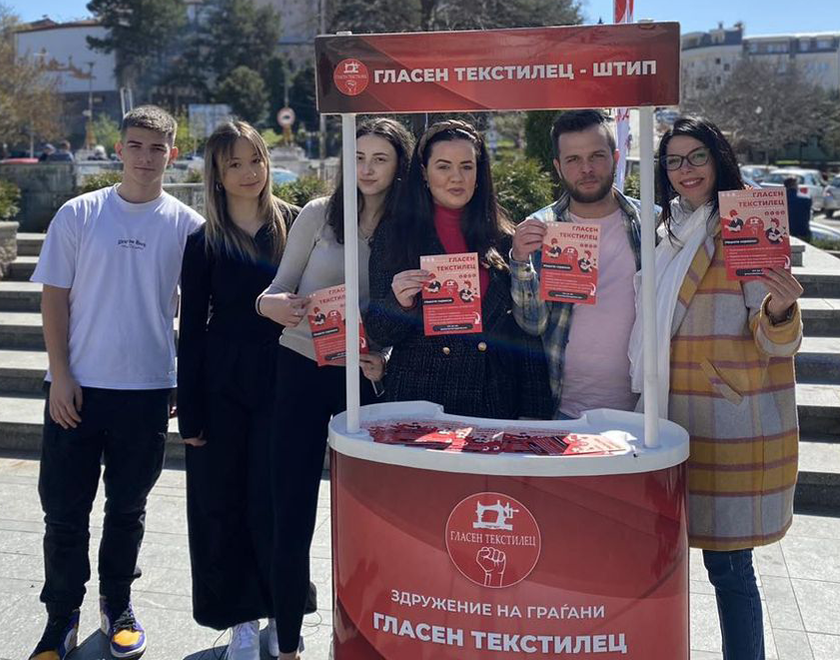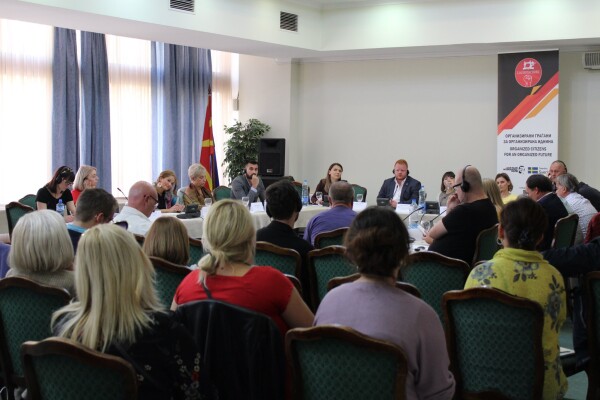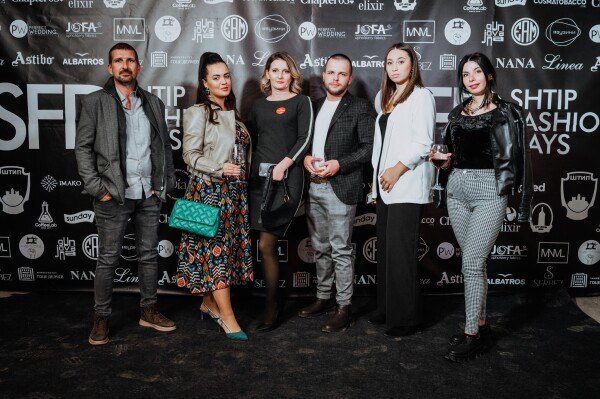
The sixth-largest city in North Macedonia, Stip punches above its weight in the textile industry. It was already a major production centre in the former Yugoslavia. Today, over 100 textile companies operate in the city.1
As manufacturing has moved outside Europe, the city's textile workers work in an increasingly challenging environment, and they have few advocates. Workers’ unions tend to be politically affiliated, and they are often reluctant to advocate for workers’ rights in the private sector.
It was this situation that prompted Kristina Ampeva, a textile worker, together with some colleagues, to create an independent organisation to raise awareness of systemic issues within the sector, to educate workers on their rights, and to lobby for the preparation of laws protecting workers.
For two years Glasen Tekstilec operated without funding, with people donating their time and efforts on a voluntary basis. Eventually, it was able to obtain external funding and register as an organisation. In 2021, it extended its mandate to the protection of all workers, not only those in textile factories. The team now includes 5 staff members and over 50 volunteers.
As soon as Glasen Tekstilec was established, the team began to advocate for textile workers to receive the same minimum wage as other categories of factory workers, which was considerably higher. Over the years, they have successfully advocated for several minimum wage increases, and for a law instituting Sundays as a non-working day for textile workers.
“The minimum wage was deliberately kept artificially low," explains Kristina. “It is a global phenomenon. Famous brands keep relocating to countries where workers’ rights are violated to maximise profit. When we started our work, the minimum wage had not been raised in any real way for almost three decades. It was unsustainable for workers.”

Since then, Glasen Tekstilec has protected the rights of countless workers in North Macedonia - during the Covid-19 pandemic they provided free legal support and representation for 12,000 workers across the country. They have participated in over 400 court cases since 2017.
Glasen Tekstilec was among the first to start a public conversation on topics like the illegal layoff of pregnant workers. The team collaborates closely with the government in the field of anti-discrimination practices. “Sometimes contracts are very short - two or three months. It's hard then to prove that pregnant women are discriminated against when they are not renewed. But we are monitoring, investigating, and focusing on strategic litigation,” Kristina says.
One of the team's biggest successes came in 2022, when they were able to prove that a North Macedonian company had falsely declared bankruptcy to avoid paying salaries to its workers. The foreign brands for which the Macedonia textile company worked then paid the local employees. It was a landmark case for textile workers in the region, where Kristina explains that it is common practice for a company to pretend to close down and then start operating under a different name in the same factory, with the same workers.
Glasen Tekstilec is increasing its reach and influence through both social media and traditional media outlets. It uses this to communicate the problems faced by workers, report from the labour inspectorate, and when working with local authorities.
Kristina has become a known face in local media, “As a former textile worker, people see me as one of their own, part of the industry. We are not a big country. Everyone knows each other, and everyone has my phone number in case they need to make a complaint,” she says.
This year, for the eighth year in a row, they hosted "Tekstiliada", a three-day event that brings together experts in workers’ rights from inside and outside the country, as well as activists, and politicians. The President of Macedonia also paid a visit. Tekstiliada includes social and cultural events to encourage youth to actively engage in decision-making processes.

It was challenging for Glasen Tekstilec to attract funding, as workers’ rights are not a core topic for many donors. Now, EED’s support is allowing them to strengthen their institutional capacity and to develop a strategy for the next three years.
“Our staff are attending training on project writing, financial management, and auditing” explains Blagojche Dishoski, Glasen Tekstilec’s financial coordinator. “We are also focusing on networking with similarly minded civil society organisations.”
The organisation has now set up a workers’ union to complement its work and it hopes to ultimately become more self-sustainable through membership dues.
“The more members we have in the union, the more powerful it will be,” says Kristina. “People believe in us and our work as activists. We want to continue putting pressure on the institutions and achieving results for workers’ rights. We’re only a small organisation from Stip, but we’ve done great things so far.”
This article reflects the views of the grantees featured and does not necessarily represent the official opinion of the EED.